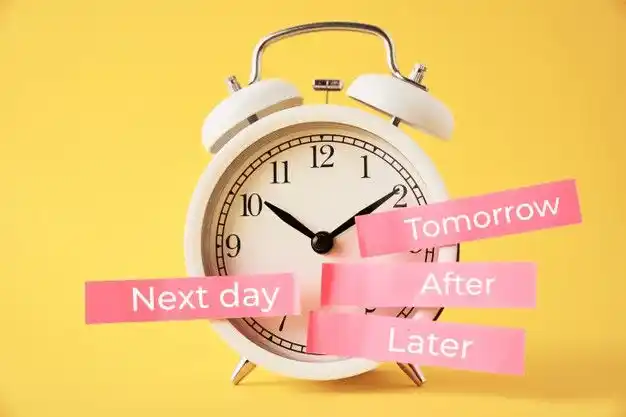Zeeshan and Karina Hayat’s Insightful Take on How to Stop Delaying Tasks

We’ve all been there: that important project you keep pushing aside, the phone call you know you should make but keep avoiding, or the workout that gets moved to tomorrow. The guilt, the stress, the frustration—it builds up. But what if you could break that cycle and stop procrastinating? What if you could tackle those tasks without the usual dread? Breaking the cycle of procrastination might seem impossible at times, but with the right strategies, you can overcome it.
While there’s no magic fix, there are practical ways to beat the inertia. Below are three common reasons why you avoid tasks and how you can work through them, including simple strategies on how to stop delaying tasks:
1. How to Stop Delaying Tasks: Overcoming Fear of Failure
Solution: Focus on what you stand to lose.
When faced with a task, many people freeze because they’re worried about failing. We often envision the worst-case scenario—losing our job, getting criticized, or disappointing someone. This fear is enough to paralyze us and prevent us from moving forward. Instead of focusing on the potential benefits of completing the task, such as career advancement or personal growth, consider the negative consequences of inaction. This shift in perspective is key to how to stop delaying tasks.
Psychologists call this a “loss aversion” bias, meaning the discomfort of potential failure is often stronger than the desire for success. So, rather than thinking, “If I finish this project, I’ll earn praise,” try framing it like this: “If I don’t finish this, I risk falling behind, letting others down, or making things worse.” By shifting your focus to what could go wrong, you’ll be more motivated to act quickly and prevent a worse outcome. Dealing with procrastination can sometimes be about leveraging that fear as motivation rather than allowing it to freeze you in place.
2. You’re Waiting for Motivation to Strike
Solution: Break the Cycle of Procrastination by Taking Action
We’ve all heard someone say, “I just don’t feel like doing this right now.” But the truth is, waiting until you feel like doing something often leads to procrastination. You don’t need to feel motivated to start a task; you just need to start.
This is a lesson artists and creatives have understood for centuries: progress comes from routine, not from waiting for fleeting inspiration. The key is to commit to the work, even when you don’t feel perfectly motivated. By starting, you give your mind the chance to catch up. Whether it’s drafting a report or heading to the gym, don’t wait for the ideal moment of enthusiasm. Simply take the first step. Motivation often follows action, not the other way around. This is one of the key ways how to stop delaying tasks.
3. The Task Feels Too Big or Unpleasant
Solution: Break it down with specific action steps.
Some tasks are daunting—they feel too overwhelming, too boring, or just plain unpleasant. This is when procrastination often wins, as we put off what seems like a herculean effort. The key is to break down the task into manageable, bite-sized steps.
Start by creating a clear plan for how you’ll approach the task. Instead of saying, “I need to finish this huge report by Friday,” break it down to something more specific: “I’ll write the first two sections today, then the next two tomorrow.” This not only makes the task feel less intimidating but also reduces the mental friction of where to begin. Each small success will build momentum and carry you through the harder parts.
Additionally, if you’re facing something particularly boring, create mini rewards. Promise yourself a 10-minute break after completing a part of the task. The key is making the process more bearable by taking the pressure off. By giving yourself small milestones to hit, you’ll build a sense of accomplishment and make even the most tedious tasks more manageable.
Conclusion
You may not always feel like getting things done, and there will always be tasks that seem difficult or unpleasant. But by reframing your perspective, focusing on consequences, and breaking tasks down into smaller steps, you can overcome procrastination. It might not be glamorous, but these methods will help you get things done when motivation is lacking—and ensure you’re not letting those tasks pile up, making everything feel even more overwhelming. Learning how to stop delaying tasks will make it easier to achieve your goals, no matter how big or small.
By shifting your focus to how to stop delaying tasks, you’ll begin to see real changes in your productivity. What could change if you started acting on what you’ve been avoiding? There’s no time like the present to break free from procrastination.
What could change if you started acting on what you’ve been avoiding
